Prague - December 7, 2012
Gretta Louw presents her paper within the panel Time and Technology at International conference MutaMorphosis in Prague, Czech Republic.
Online social media is one of the most significant new factors shaping 21st century societies. The internet, particularly social media, has led to radical overhauls of the methods and patterns with which people communicate, locate information, receive news and current affairs, and the ways in which companies, politicians, and cultural producers interact with the public. Yet there has been only rather uni-dimensional commentary about the revolutionary potential of these new technologies (eg. Arab Spring and OWS movements), and surprisingly little critical analysis of how the internet/social media are moulding societies and individuals.
Multi-disciplinary artist Gretta Louw devised her durational, online performance, Controlling_Connectivity, as a ‘self-experiment’ testing the psychological burden associated with our increasingly ‘online’ lives. The rapid penetration of these technologies into all facets of life was taken to the extreme as the artist completely surrendered her time to unknown internet users. From 2-12 November 2011, she lived in total isolation within the gallery space, except interaction via the internet. Supplies were stored within the gallery with no one entering or leaving during the performance, and the windows were blacked-out to preclude and normalising effects of natural light or outside rhythms.
For 240 hours Louw lived in a state of constant online readiness, responding immediately to Facebook, Skype, Google +, or Twitter contact. She conducted interviews with extreme Second Life users, whose concepts of ‘family’ challenge the idea of mutually exclusive ‘real’ and ‘virtual’ worlds and lend weight to DeLanda’s term “real virtuality”; she investigated the rapidly forming world of online video ‘hangouts’ on the Google + platform, exploring the fanatical brand loyalty and undercurrent of ‘internet stardom’; she celebrated her 30th birthday digitally from within the gallery, testing the limits of online mediums in conveying emotion and replacing physical closeness.
Subsequently an exhibition at Art Laboratory Berlin sought to interpret the performance and present the viewer with a glimpse into the psychological and physical experience of 240 hours online. In early 2012 the artist released a book, which further analysed the results of the self-experiment, incorporating essays from curators Regine Rapp and Christian de Lutz as well as from media theorists and both online and traditional psychology professionals. The book also presented results from pre- and post-performance psychological testing that the artist underwent to measure psychological factors such as depression, general well-being, and quality of life – the results were quite startling, showing a significant reduction in well-being and an increase in stress and anxiety post-performance.
The pressure to be connected/online/constantly available has never been so great, and is only growing with the advent of smartphones and tablets. It is argued that participation in the elaborate communication networks that now underlie social interaction is no longer voluntary, since failure to participate is akin to social withdrawal. The consequent erosion of true leisure time, the blurring of the traditional professional/personal, public/private dichotomies and an information overload are creating hitherto unknown levels of psychological pressure as the debate about a so-called ‘internet addiction’ disorder rages in the academic community .
As psychoanalyst and media curator/theorist Leon Tan writes “The chief merit of the [Controlling_Connectivity] project is perhaps in pushing us to take our networked experiences seriously, to reflect on the consequences of reconfiguring co-presence.” Curator Christian de Lutz comments:
“What would be the cost, professionally and personally, if we ignored various social networks? We almost seem to have forgotten that hardly any of this existed 20 years ago. In all the speed of acclimatising to new technologies, we have had little, if any time to reflect on how it has changed us; changed our minds, souls and our society. Gretta Louw’s project Controlling_Connectivity provides a unique and long overdue starting point.”
What are the revolutionary, democratising aspects of online social media and is it all as utopian as some commentators would have us believe? Is there such a thing as ‘internet addiction’; are we creating new psychological disorders through our fanatical adherence to a path of technological advancement? If so, is it worth it? At MutaMorphosis the results of Controlling_Connectivity will be discussed with a view to analysing the role of social media and the internet in, as the MutaMorphosis website calls it, “a world undergoing a complete mutation”.
- Tags:

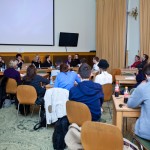
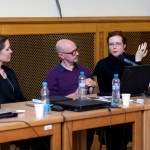
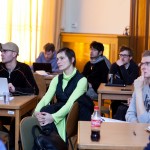
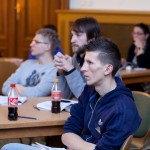
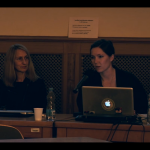
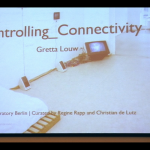
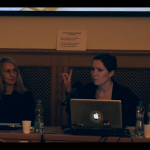
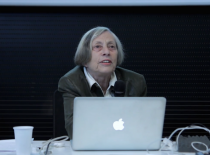
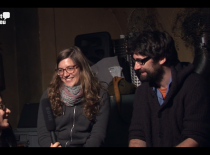
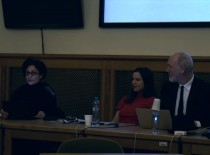
 Copyright © 2025 ARTISTTALK. All Rights Reserved.
Copyright © 2025 ARTISTTALK. All Rights Reserved.
0 Comments
You can be the first one to leave a comment.